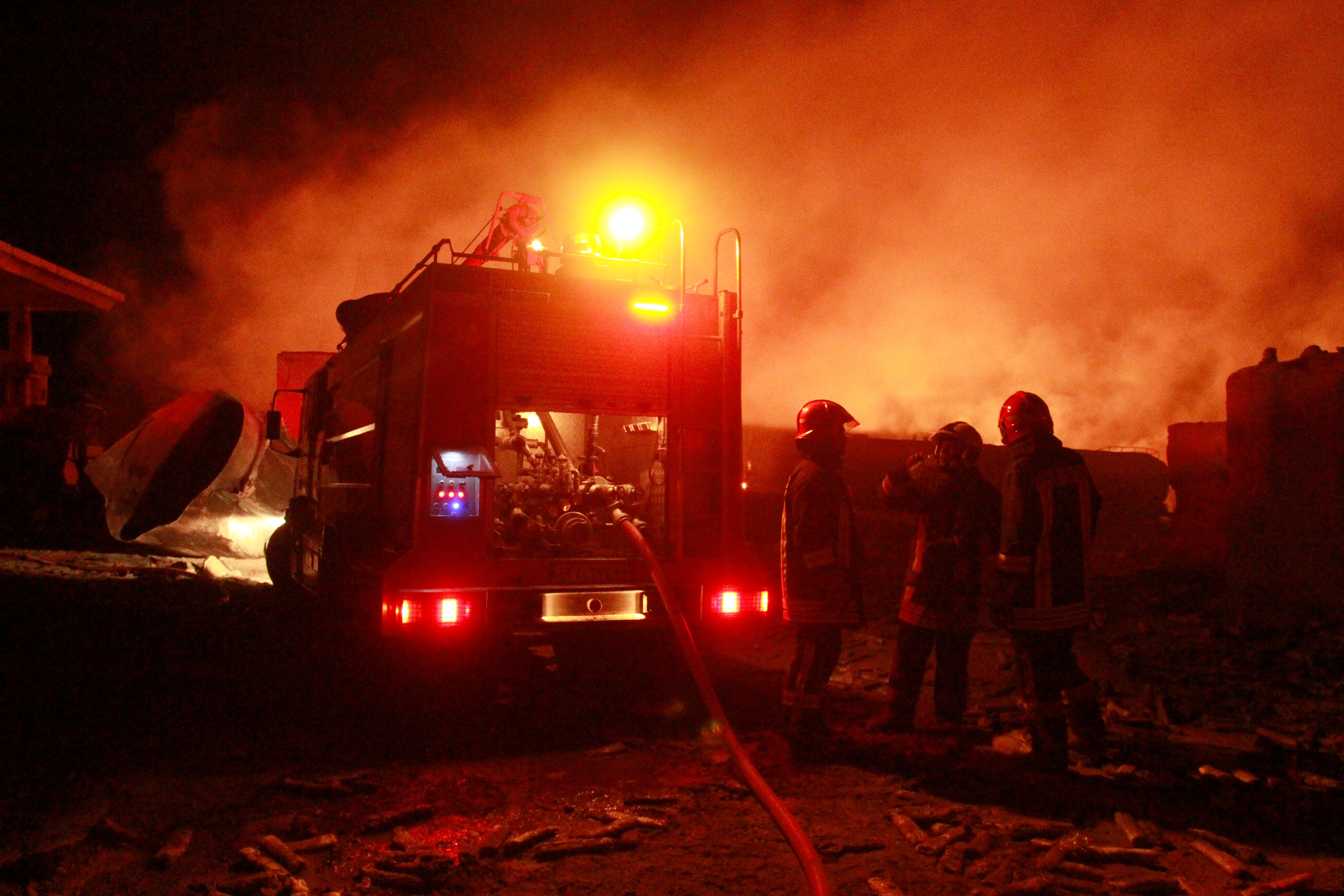After 3 days, Afghan-Iran border blaze brought under control
Afghan officials say a massive fire that erupted when a fuel tanker exploded at a major crossing in Afghanistan’s western Herat province on the Iranian border over the weekend has been brought under control

Your support helps us to tell the story
From reproductive rights to climate change to Big Tech, The Independent is on the ground when the story is developing. Whether it's investigating the financials of Elon Musk's pro-Trump PAC or producing our latest documentary, 'The A Word', which shines a light on the American women fighting for reproductive rights, we know how important it is to parse out the facts from the messaging.
At such a critical moment in US history, we need reporters on the ground. Your donation allows us to keep sending journalists to speak to both sides of the story.
The Independent is trusted by Americans across the entire political spectrum. And unlike many other quality news outlets, we choose not to lock Americans out of our reporting and analysis with paywalls. We believe quality journalism should be available to everyone, paid for by those who can afford it.
Your support makes all the difference.A massive fire that erupted when a fuel tanker exploded over the weekend at a major crossing in Afghanistan’s western Herat province on the Iranian border was brought under control on Monday, after three days of efforts by firefighters from both countries, Afghan officials said.
At least 20 people were injured when the explosion that set off a huge fire that engulfed many of the hundreds of trucks lined up at the Islam Qala crossing carrying natural gas and fuel on Saturday. The crossing, around 120 kilometers (75 miles) west of the city of Herat, the provincial capital, is a major transit route between Afghanistan and Iran.
The inferno involved two explosions at the border crossing — powerful enough to be spotted from space by NASA satellites — with about a half-hour between them. There has been no word so far as to what caused of the explosion of the fuel tanker or the subsequent blast. The explosions shut down the power grid in the region, leaving Herat in the dark.
Wahid Qatali, the Herat provincial governor, said more than 2,000 vehicles at the site of the blaze were saved, including 1,500 rushed across the border into Iran to keep them away from the fire.
At the time of the blaze, the crossing point — which has a capacity of up to 700 oil trucks — was overcrowded with more than 2,500 trucks, said Qatali.
Satellite photos taken on Sunday showed the fire still billowing black smoke on the Afghan side of the border. Typically, dozens upon dozens of fuel tankers park there while securing permissions to move between the two countries.
On Monday, only small fires were smoldering in just a few places and were expected to be finally extinguished by the end of the day, said Qatali, adding that an investigation would look into what caused the blaze and also “estimate losses for the government and the private sector."
Seven of the injured were taken to hospitals in Iran for further treatment, Qatali added.
The United States allows Afghanistan to import fuel and oil from Iran as part of a special concession that exempts Kabul from U.S. sanctions against Iran. Satellite photos taken Saturday before the explosion showed dozens of tankers parked on the Afghan side at the border crossing.
From the Afghan side, the fire quickly spread to the Dogharoon customs facilities on the Iranian side of the border. First responders, including the fire department, the Iranian army and border forces, assisted the firefighting efforts, Iranian state television reported.
The Afghan side of the crossing has its own fire department, but Herat officials said it was unable to bring the blaze under control. Iran sent 15 firefighting units to the Afghan side to help.
In Kabul, the government said it was working on an alternative route to resume trade between the two countries. Iranian officials say they would accelerate customs processes at other border crossings with Afghanistan.
___
Faiez reported form Kabul, Afghanistan. Associated Press writer Jon Gambrell in Dubai, United Arab Emirates, contributed to this report.